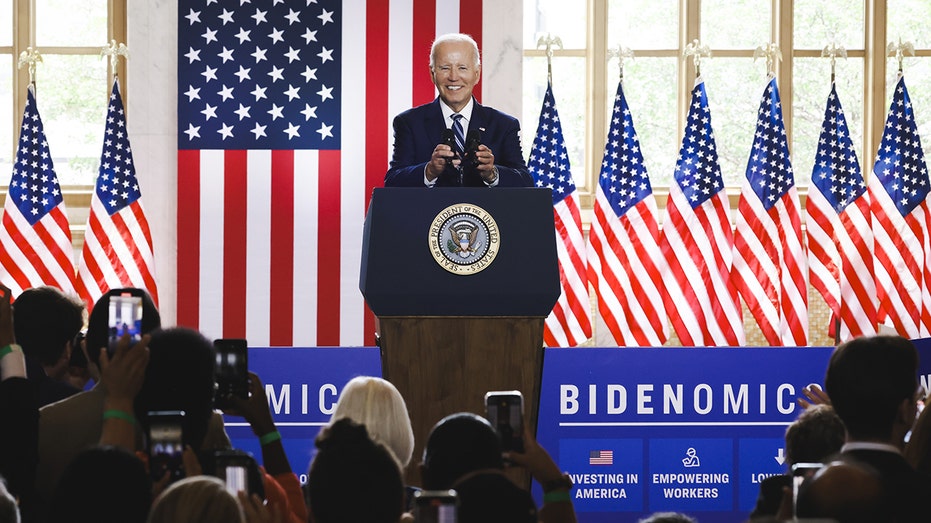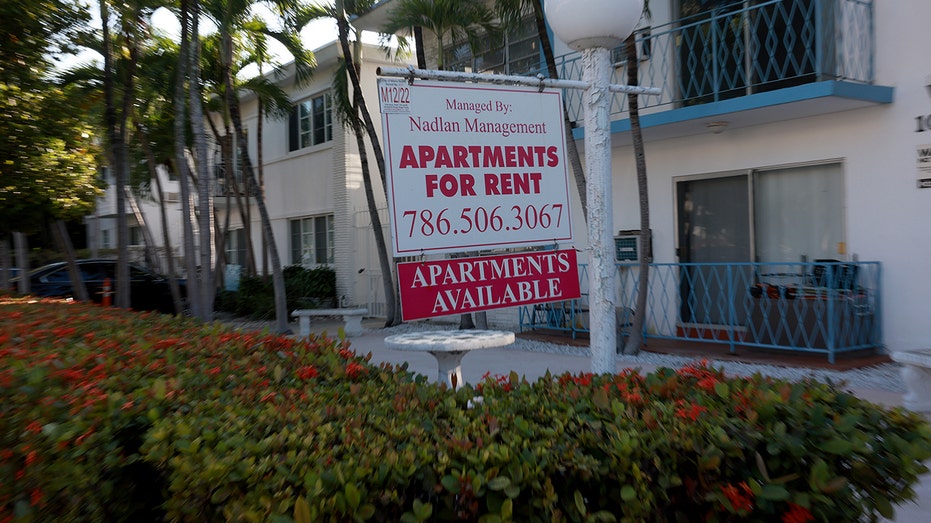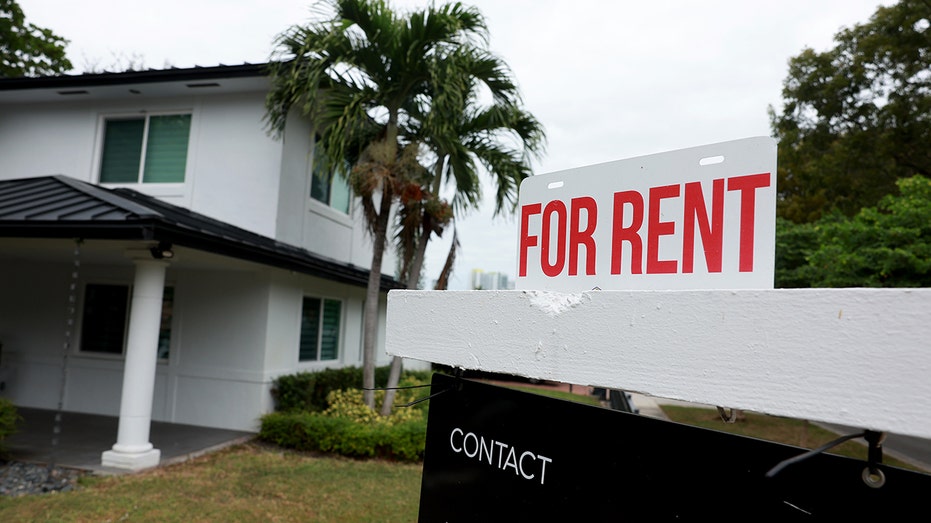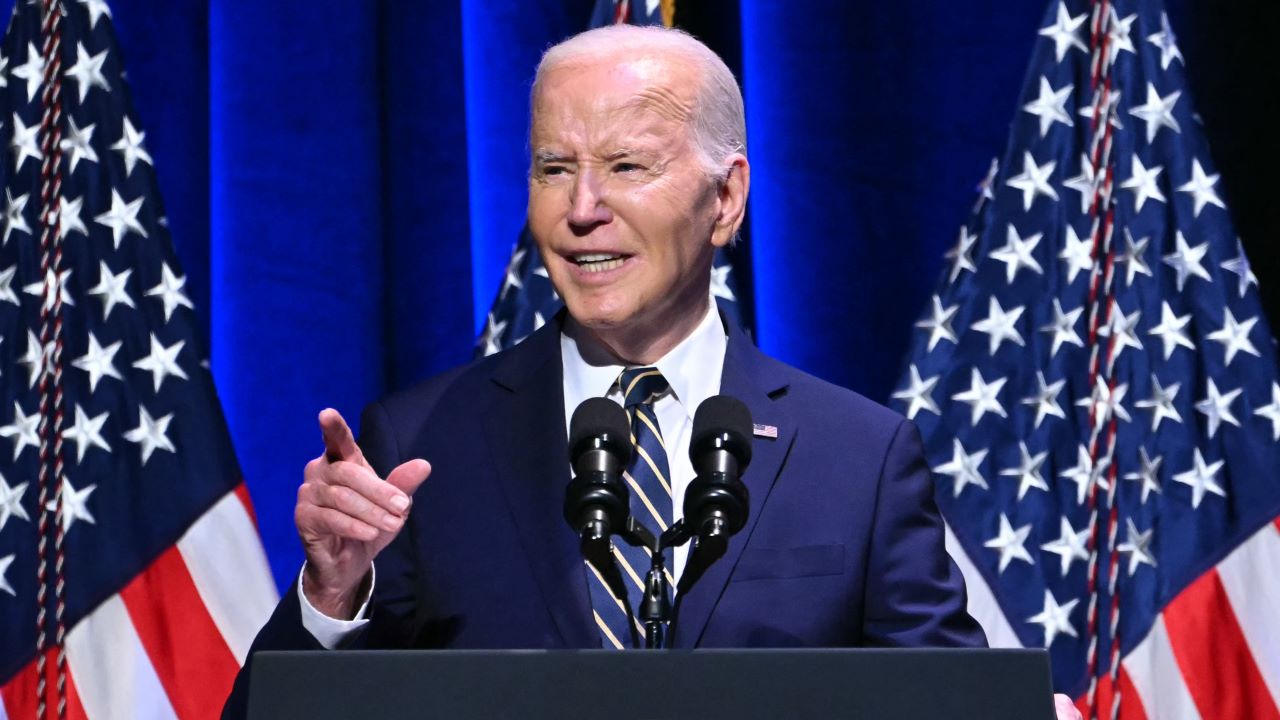Biden unveils plan to cap national rent increases at 5%
Biden admin's proposed rule would apply to landlords with over 50 units
Housing affordability crisis is a ‘major problem’ for the US economy, expert says
The Bahnsen Group founder and CIO David Bahnsen surveys the real estate market as younger homebuyers struggle with the ongoing housing crisis.
President Biden unveiled a plan to stop the astronomical rise in rent by penalizing corporate landlords who raise rents by more than 5% each year.
If landlords did not restrict rent increases to 5% or less, they would risk losing access to lucrative tax breaks.
"Rent is too high and buying a home is out of reach for too many working families and young Americans," Biden said in a statement. "Today, I'm sending a clear message to corporate landlords: If you raise rents more than 5%, you should lose valuable tax breaks."
The proposed rule would apply to landlords with more than 50 units, which would cover more than 20 million units or about half the rental market in the country, according to a fact sheet from the administration.
EVICTIONS ARE RISING FASTEST IN THESE 5 AMERICAN CITIES

President Biden during an event at the Old Post Office in Chicago, Illinois, on June 28, 2023. (Taylor Glascock/Bloomberg via Getty Images / Getty Images)
The proposal would need to garner congressional approval in order to become law. With a Republican-controlled House and a Democratic-controlled Senate, the plan is unlikely to gain much traction.
"While the prior administration gave special tax breaks to corporate landlords, I’m working to lower housing costs for families," Biden said. "Republicans in Congress should join Democrats to pass my plan to lower housing costs for Americans who need relief now."
The plan includes an exemption for new construction and buildings that are being "substantially" renovated.
WHY CAN'T YOU FIND A HOME FOR SALE?
Rent has been driving inflation for months as pandemic lockdowns, pent-up demand and record-high housing prices sent costs soaring.

An 'Apartments for Rent' sign hangs in front of a building on Dec. 6, 2022, in Miami Beach, Florida. (Joe Raedle/Getty Images / Getty Images)
High rents are a concerning development because more expensive housing costs most directly and acutely affect household budgets.
Roughly 34% of households are renters, according to Census Bureau data, but that figure is even larger for lower- and middle-income families. More than half – roughly 52.6% – of households with family income that is below the national median of $31,133 are renters.
Households, in general, spend about 7% of their annual expenditures on rent, while households without college degrees spent nearly 10% of their total expenditure on rent in 2020.
FED'S POWELL SAYS OFFICIALS WON'T WAIT UNTIL INFLATION REACHES 2% TO CUT RATES
There are several reasons for runaway rent costs, including high demand as steep prices and mortgage rates locked many would-be homebuyers out of the housing market. Low inventory and a pandemic-induced demand for more space also explains the increase.
Rents have climbed 26% nationally since the start of 2020, before the pandemic began, according to a recent report from Harvard's Joint Center for Housing Studies.

A "for rent" sign is posted in front of a home on Dec. 12, 2023, in Miami, Florida. (Joe Raedle/Getty Images / Getty Images)
Yet industry groups have criticized proposals from the Biden administration intended to reduce housing costs, including a rent cap.
GET FOX BUSINESS ON THE GO BY CLICKING HERE
In a statement, the Housing Solutions Coalition, a collaboration between major housing groups, said that a rent cap could ultimately hurt renters by reducing available supply.
"Decades of academic research from across the United States and around the world clearly show that rent caps — more commonly known as rent control — reduce the supply of available housing and fail to target those renters who need help the most while simultaneously harming other residents and the communities they reside in," the statement said. "Rent caps hurt renters and communities."





















